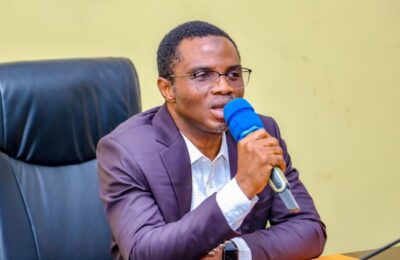Introduction
Nigeria, Africa’s most populous nation, faces persistent security challenges that threaten the peace, stability, and development of the country. Despite the massive population, the Nigerian security architecture is grossly under-policed relative to international standards such as those set by the United Nations (UN). The disparity between the security demands and available personnel underscores an urgent need for reform, especially in recruitment and capacity building.
The UN Standard for Policing
The United Nations recommends a policing ratio of at least 1 officer per 450 citizens to ensure effective law enforcement and public safety. This benchmark aims to facilitate community policing, crime prevention, and quick response to emergencies. Applying this standard to Nigeria’s population of over 200 million suggests a need for approximately 444,444 police officers. However, Nigeria’s police force currently stands at roughly 400,000 personnel—a figure that barely meets the minimum requirement and falls short of the ideal ratio, especially considering the country’s diverse security challenges.
Current Security Personnel in Nigeria
Beyond the police, Nigeria’s security apparatus comprises:
Nigerian Army:
- 150,000 personnel
Nigerian Navy: - 20,000 personnel
Nigerian Air Force: - 15,000 personnel
Nigeria Security and Civil Defence Corps (NSCDC): - 30,000 personnel
Other paramilitary agencies: - Tens of thousands
In total, the security personnel number approximately 615,000 to 700,000. While this might seem substantial, it remains inadequate given Nigeria’s vast geographical expanse, complex socio-political landscape, and rising security threats. Security Challenges in Nigeria
Nigeria is currently embroiled in multiple, complex security challenges that threaten national stability:
Insurgency and Terrorism:
- Boko Haram’s insurgency in the Northeast has caused widespread displacement, loss of lives, and destabilization.
Activities of IPOB (Indigenous People of Biafra): - IPOB’s agitation for independence has led to violent clashes, military confrontations, and regional instability, particularly in the Southeast.
Fulani Herdsmen: - Fulani herdsmen have been involved in violent conflicts with farming communities over land and resources, resulting in loss of lives and property.
Kidnapping for Ransom: - Widespread kidnapping, especially in the Northwest and North-central regions, has become a lucrative criminal enterprise, endangering lives and disrupting social order.
Lukerawa and Mahmudah Groups: - These are among various criminal groups involved in banditry, cattle rustling, and violent clashes that undermine security in rural and semi-urban communities.
Other Threats: - Cybercrime, political violence, ethno-religious conflicts, and militancy in the Niger Delta further complicate Nigeria’s security landscape.
These multifaceted threats require a comprehensive, well-equipped, and adequately staffed security apparatus. The current personnel levels are insufficient to effectively handle these crises, resulting in overburdened security agencies, delayed responses, and a compromised state of security.
Breakthrough: Nigeria’s Development of a Combat Drone
In a significant stride towards enhancing national security, Nigeria recently achieved a critical breakthrough in unmanned aerial vehicle (UAV) technology by developing its own combat drone. This technological advancement marks a pioneering step in Nigeria’s military capabilities, enabling the country to conduct aerial surveillance, reconnaissance, and targeted operations with greater precision.
The indigenous combat drone project was spearheaded by Nigeria’s defense research institutes, with support from local engineers and technologists. This development enhances Nigeria’s strategic defense posture, allowing for real-time intelligence gathering and reducing dependency on foreign military technology.
However, technological innovations alone cannot substitute for a well-trained, adequately staffed security force. The drone’s effectiveness hinges on the personnel operating it—underscoring the need for larger, well-trained security agencies equipped with modern tools.
The Need for Recruitment, Capacity Building, and Structural Reforms
To bridge the personnel gap and maximize the benefits of technological innovations like combat drones, Nigeria must prioritize:
Mass Recruitment: Increasing the number of security personnel to meet international standards.
Enhanced Training: Improving the quality of training to equip officers with modern policing and operational skills, especially in drone operation, cyber security, and intelligence gathering.
Better Equipment and Resources: Providing adequate tools for effective law enforcement.
Community Engagement: Fostering trust and cooperation between security agencies and the populace.
Establishment of State Police: Recognizing the importance of decentralizing policing authority by establishing state police forces. This move can improve local policing, foster community trust, and enable more tailored responses to regional security issues.
The establishment of state police is a vital reform that can decentralize law enforcement, reduce the burden on federal agencies, and allow for more localized, culturally sensitive policing. It also encourages community participation and enhances responsiveness to regional security challenges.
Proposed Solutions
Policy Reforms :
•The government should formulate policies that facilitate large-scale recruitment, the establishment of state police, and retention of security personnel.
Funding :
- Allocate sufficient budgetary resources for recruitment, training, and operational needs.
Partnerships : - Collaborate with international agencies and organizations for training and resource support.
Use of Technology : - Integrate modern technology such as surveillance, data analytics, and communication tools to enhance operational efficiency.
Community Policing : - Foster community involvement to supplement formal security efforts, making policing more effective and acceptable. Summary and Conclusion
Nigeria’s security situation is dire, compounded by gross under-policing and inadequate personnel. The current figures fall far short of the United Nations standard, leaving the nation vulnerable to internal and external threats. The recent development of indigenous combat drones signifies Nigeria’s technological progress, but technological advancements must be complemented by a strong, well-staffed, and decentralized security framework.
The activities of groups such as IPOB, Fulani herdsmen, and various criminal gangs like Lukerawa and Mahmudah highlight the urgent need for a robust, well-trained security force capable of dealing with multifaceted threats. Establishing state police can significantly improve local policing, community trust, and regional security responses.
Nigeria must commit to a comprehensive overhaul of its security sector—through aggressive recruitment, capacity building, the establishment of state police, and resource allocation. Only then can the country build a resilient, professional, and adequately staffed security infrastructure capable of confronting its complex security challenges and ensuring peace and stability for all its citizens.
– Opaluwa Eleojo Simeon
PhD Student in Criminology and Security Studies, National Open University of Nigeria.




